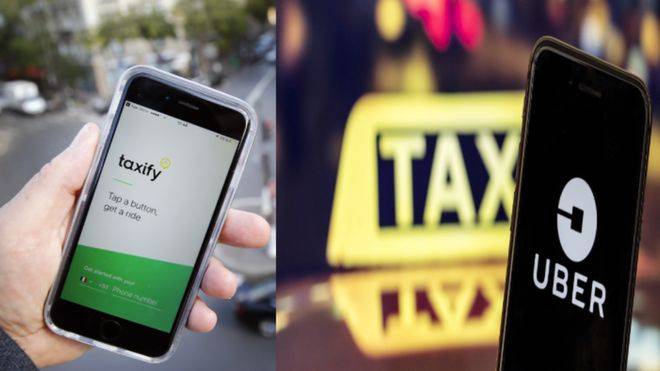Kenyan Uber, Bolt Drivers To Pay Up Tens Of Millions In Taxes As KRA Tightens Measures

The Kenya Revenue Authority is targeting tens of millions from Kenya’s taxi-hailing industry, specifically the value-added tax (VAT) on the apps they supply to the drivers as well as commissions paid to them from customer rides.
In an ongoing tax audit for value-added tax (VAT) of their income, the tax agency noted that the drivers have not been paying up taxes on their earnings.
“Further, under the VAT Act 2013, the provision of the platform services for use by partner drivers is a taxable supply,” KRA said in the report.
In the report, the agency cited Section 3 of the Income Tax Act which requires the ride-hailing apps to pay all taxes derived in Kenya, whether resident or non- resident in the country.
KRA has overtime expressed dissatisfaction over the taxes paid by the nascent industry and it previously asked the National Assembly to create a special law for the regulation of the taxi-hailing apps, different from that regulating the entire taxi sector.
For instance, it highlighted that it was owed Sh34.42 million from one firm in a corporation, payroll, VAT and withholding taxes.
“The main challenge in taxing taxi-hailing cab applications is that of enforcement since tax on commissions paid to non-residents is collected through the Withholding Tax regime, which requires partner drivers to withhold tax as they pay commissions,
“Enforcement of tax on the income of the partner drivers is also a challenge due to lack of information on drivers,” KRA said.
Most of the digital taxi-hailing firms are registered in foreign countries, with their local subsidiaries only dealing with some of the aspects of the business.
For instance, the subsidiary of Uber only handles marketing and support aspect of the business, while Bolt Kenya is registered in Estonia.
Tax collections from the sector have been increasing year on year. For the year ended June 2019, KRA doubled its taxes to Sh232.9 million from Sh151.3 million a year earlier.
Featured Image Courtesy: Innovationvillage.com